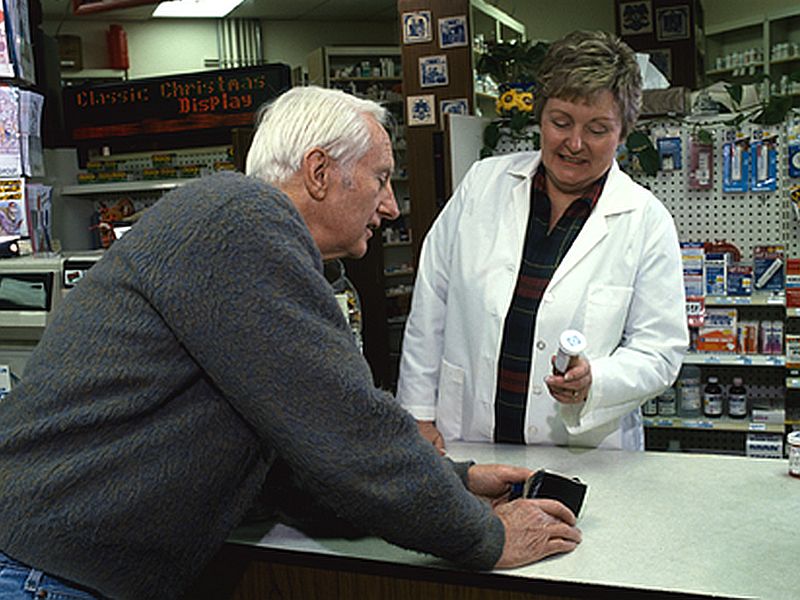
THURSDAY, Oct. 24, 2019 (HealthDay News) -- One in eight U.S. pharmacies closed in recent years, with independent pharmacies in cities taking the hardest hit, a new study shows.
Specifically, 9,654 pharmacies closed from 2009 to 2015. Independent pharmacies in both cities and rural areas were three times more likely to close than chain pharmacies.
About one in four pharmacies in urban, low-income neighborhoods closed, compared with one in seven pharmacies in rural, low-income neighborhoods, the researchers found.
In cities, pharmacies serving large numbers of uninsured or publicly insured patients with Medicare or Medicaid were two times more likely to close than other pharmacies, a difference that wasn't evident in rural areas, according to the University of Illinois at Chicago (UIC) study.
"Independent pharmacies are often excluded from preferred pharmacy networks and 340B [drug pricing] contracts, which are both increasingly important aspects of the pharmacy market, so it is not surprising that independent stores are at greater risk for closure," said senior study author Dima Mazen Qato, an associate professor of pharmacy systems, outcomes and policy at the UIC College of Pharmacy.
"Efforts to improve access to prescription drugs have focused almost exclusively on reducing drug costs, but affordable medications aren't easily accessible when a local pharmacy closes," Qato said in a university news release. "We need policies that specifically address pharmacy closures because such closures negatively impact access and adherence to prescription drugs."
The findings could assist policymakers trying to improve access to prescription drugs in the United States, the researchers suggested.
The study authors said that payment reforms -- including higher reimbursement rates for Medicaid and Medicare prescriptions -- and strengthening the regulation of pharmacy access standards, preferred pharmacy networks and the 340B Drug Pricing Program are needed to help pharmacies most at-risk for closure, specifically in cities.
"Our findings also indicate that pharmacy retailers, in partnership with health plans and pharmacy benefit managers, may need to consider more innovative, targeted and efficient strategies in the delivery of pharmacy services," Qato said.
The findings were published Oct. 21 in JAMA Internal Medicine.
More information
The U.S. National Library of Medicine has more on getting a prescription filled.
Back

The news stories provided in Health News and our Health-E News Newsletter are a service of the nationally syndicated HealthDay® news and information company. Stories refer to national trends and breaking health news, and are not necessarily indicative of or always supported by our facility and providers. This information is provided for informational and educational purposes only, and is not intended to be a substitute for medical advice, diagnosis, or treatment.






